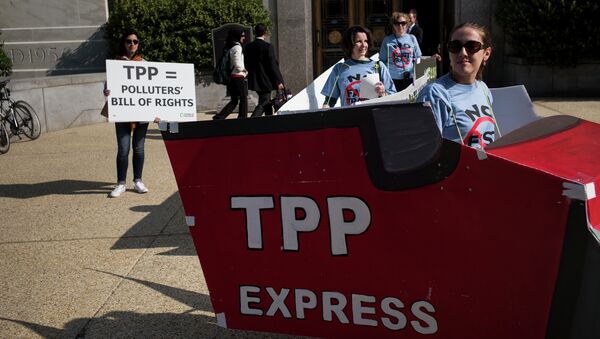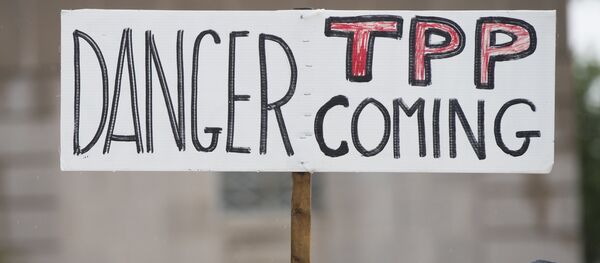In terms of intellectual properties provision, TPP has strong anti-circumvention measures, outlawing hacking of digital rights management and establishing strong copyright controls.
While speaking of copyright control, Weatheral stressed that it covers every kind of creative product; everything from music to books to computer programs to art works to plays to movies, any kind of audiovisual material including YouTube clips as well are covered by copyright.
“The idea is to fight against piracy, although the reality is that a lot of TPP rules like blocking access to particular websites are actually on strangely dazed rules that are based on American law that was written in late 1990s.”
However, intellectual property chapter of TPP also sets strict access to medicines which the professor found even more controversial in the long term, as she believes it will increase the prices of drugs which is a “life and death” issue.
She believes the American copyright defense is “really valuable” while commenting opinion that TPP could infringe upon the rights of ordinary internet users who use background material in their videos and could face allegations from music companies.
“In the US they have a defense called Fair Use that if your use of certain copyright material is considered fair and it’s not too much of any impact on a copyright’s economic rights and not too much of losing money, then it can be classed as a non-infringement.”
“TPP includes all the strict rules in favor of copyright owners, but the US use this fair use exceptions. So countries that don’t have generous fair use oriented exceptions but get all the stronger rights and end up with pretty radically invalid copyright,” the professor emphasized.
“Investors in a country can bring a claim if they argue that some laws or actions the government has taken has breach one of the rule of the investor-state of this agreement, if, for example, the government expropriates property of an investor, or is it objected to what is considered as no fair equitable treatment, then the investor can sue for damages through international system of arbitration,” Weatherall said.
People slammed the system of arbitration as their decisions will remain outside the judiciary system and cannot be appealed.
The Professor also brought up the idea of “indirect expropriation,” where a company argues that laws a company enacts undermine the value of an investment or brand and must be overturned.
She used the example in Australia where Phillip Morris argued the country indirectly expropriated the companies trademark when it introduced plain packages on cigarettes.




